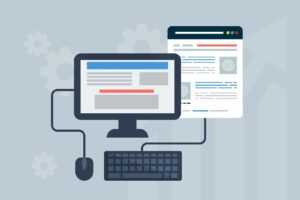To buy Hyundai inventory in India, you want to follow...
Read MoreMost Recent Blogs
Kyle Verreynne Net Worth
An industrious South African cricketer, Kyle Verreynne has done well...
Read MoreDeepak Mohoni Net Worth in 2024
Deepak Mohoni is a famous call within the Indian stock...
Read MoreSherrone Moore net worth in 2024
Sherrone was born on 31st December in the year 1974,...
Read MoreYour Financial Education
Financial Education वित्तीय शिक्षा आपके धन का कुशलतापूर्वक प्रबंधन करने...
Read MoreTolins Tyres IPO Share Price
Tolins Tyres IPO share Price Tolins Tyres is gearing up...
Read MoreKross Limited Share Price
Kross Limited share price Kross Limited is a distinguished player...
Read MoreBrett Rypien Net Worth
Brett Rypien net worth American football quarter back Brett Rypien...
Read Morewhat is Financial Planning?
Financial planning is a comprehensive approach to handling your price...
Read MorePopular Blogs
Bill Pascrell Net Worth in 2024
Bill Pascrell net worth: Bill Pascrell’s net worth is a...
Read MoreWhat is Nutrition? : Nutrition and Mental Health
Nutrition is the cornerstone of a healthy lifestyle. It encompasses...
Read MoreDecoding Variables: Understanding Their Significance and Functionality
Variables lie at the core of programming and data analysis....
Read MoreGuide to Creating Stunning Web Pages by HTML
HTML stands as the cornerstone, the bedrock upon which the...
Read MoreWhen it comes to managing our personal finances, knowledge truly is power. Financial literacy is the foundation upon which we can build our wealth and achieve long-term financial security. Without a solid understanding of how money works and how to make it work for us, we may find ourselves struggling to achieve our financial goals.
Table of Contents
ToggleOne of the key benefits of financial literacy is the ability to avoid common financial pitfalls. When we understand the risks and potential consequences of certain financial decisions, we are less likely to fall victim to scams, predatory lending practices, or other financial traps. Financial literacy empowers us to make smart choices and protect ourselves financially.
Understanding Your Financial Situation
Before we can begin building wealth and achieving financial security, we must first understand our current financial situation. This means taking an honest and thorough look at our income, expenses, assets, and liabilities.
Start by creating a comprehensive budget that outlines all of your sources of income and all of your expenses. This will enable you to see just how much money you are bringing in and spending. Examine your spending patterns to see where you may make savings or get rid of wasteful expenditures. More money will be available for investing and saving as a result.
It is important to assess your assets and liabilities. Take stock of your current savings, investments, and any property or valuables you own. On the other hand, make a list of all your debts, including credit card balances, loans, and mortgages. By knowing where you stand financially, you can make informed decisions about how to best allocate your resources.
Setting Financial Goals
Once you have a clear understanding of your financial situation, it is time to set some goals. Financial goals provide a roadmap for your financial journey and give you something to strive for. Whether your goals are short-term or long-term, they should be specific, measurable, achievable, relevant, and time-bound (SMART).
Start by identifying your short-term goals, such as paying off credit card debt or saving for a vacation. Then, move on to your long-term goals, such as buying a home or retiring comfortably. Break down each goal into smaller, manageable steps and set deadlines for achieving each step. This will help you stay motivated and focused on your financial goals.
Remember, financial goals can and should evolve over time. As your financial situation changes and you achieve certain milestones, revisit and adjust your goals accordingly. By regularly reassessing and updating your goals, you can ensure that they remain relevant and aligned with your current financial circumstances.
Budgeting and Saving
One essential ability for handling personal money is budgeting. A budget is simply a plan for how you will allocate your income and expenses. By creating a budget and sticking to it, you can ensure that your money is being spent wisely and in line with your financial goals.
Start by tracking your expenses for a month or two to get a clear understanding of where your money is going. Sort your expenditures into two categories: variable and fixed. Fixed costs are expenses that remain relatively constant, such as rent or mortgage payments, while variable costs fluctuate from month to month, such as groceries or entertainment.
Once you have a clear picture of your expenses, set spending limits for each category based on your financial goals. Look for places where you may make savings or get rid of wasteful spending. By establishing automatic transfers to a different savings account or investment vehicle, you may want to think about automating your savings. This will make it easier to save consistently and ensure that you are always putting money aside for your future.
Managing Debt
Debt can be a significant obstacle to building wealth and achieving financial security. High-interest debts, such as credit card balances or payday loans, can quickly spiral out of control if not managed properly. That is why it is crucial to develop a plan for managing and reducing your debt.
Start by organizing your debts and prioritizing them based on interest rates. Prioritize paying off debts with high-interest rates and make the bare minimum payments on bills with lower interest rates. If taking out a single loan with a reduced interest rate makes financial sense, think about combining your obligations.
In addition to paying down your debt, it is important to avoid taking on new debt whenever possible. This entails living within your means and fighting the urge to utilize credit cards for impulsive expenditures.By managing your debt responsibly, you can free up more of your income for saving and investing.
Building an Emergency Fund
Life is full of unexpected events and emergencies. Having an emergency fund is crucial to protect yourself financially when these events occur. An emergency fund is a savings account specifically designated for unforeseen expenses, such as medical bills or car repairs.
Start by setting a target amount for your emergency fund, typically three to six months’ worth of living expenses. This will provide a cushion to cover your basic needs in case of job loss or other financial setbacks. Make saving for your emergency fund a priority by allocating a portion of your income to it each month.
Consider automating your emergency fund savings by setting up automatic transfers from your checking account to a separate savings account. This will ensure that you are consistently putting money aside for emergencies and prevent you from spending it on other non-essential expenses.
Investing for the Future
Investing is a crucial component of building long-term wealth and achieving financial security. By investing your money wisely, you can grow your wealth over time and increase your chances of achieving your financial goals.
Start by educating yourself about different investment options, such as stocks, bonds, mutual funds, and real estate. Consider your risk tolerance and time horizon when choosing investments. Diversify your portfolio by investing in a mix of different asset classes to spread out risk.
If you are new to investing, consider seeking professional advice from a financial advisor who can help you develop an investment strategy based on your individual circumstances and goals. Remember, investing is a long-term game, and it is important to stay disciplined and avoid making impulsive investment decisions based on short-term market fluctuations.
Planning for Retirement
Retirement may seem far off, but it is never too early to start planning for it. The earlier you start saving for retirement, the more time your money has to grow and accumulate compound interest. By taking advantage of retirement savings vehicles such as 401(k)s or individual retirement accounts (IRAs), you can ensure a comfortable retirement.
Start by determining how much income you will need in retirement. Consider factors such as your desired lifestyle, healthcare costs, and inflation. Then, calculate how much you need to save each month to reach your retirement goal. Automate your retirement savings by contributing to your employer’s retirement plan or setting up automatic transfers to your retirement account.
Regularly review and adjust your retirement plan as your circumstances change. Consider consulting with a financial advisor to ensure that you are on track to meet your retirement goals. Remember, the power of compounding can work in your favor if you start saving early and consistently.
Conclusion
Navigating the world of personal finance can be challenging, but with the right knowledge and skills, you can build wealth and achieve financial security. By prioritizing financial literacy, understanding your financial situation, setting goals, budgeting and saving, managing debt, building an emergency fund, investing for the future, and planning for retirement, you can take control of your financial future.
Remember, financial success requires discipline, patience, and a long-term perspective. Stay committed to your financial goals, educate yourself about personal finance, and seek professional advice when needed. With time and effort, you can build a solid financial foundation that will support you and your loved ones for years to come.
Copyright © All Rights Reserved. GMS













